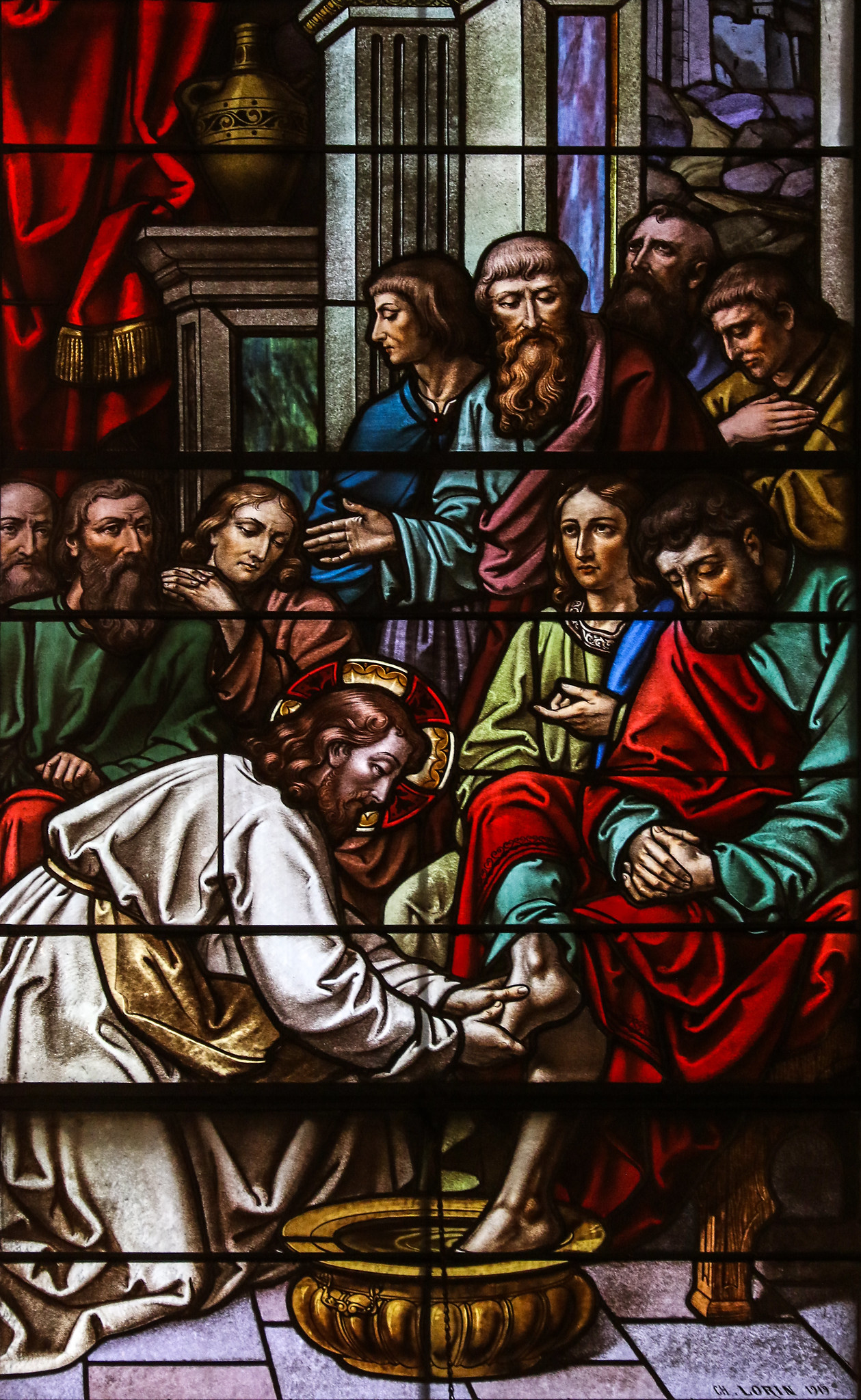
Stained glass from the Church of St. Jean Baptiste in New York City showing Christ washing the feet of his Apostles at the Last Supper. Jesus’ invitation to follow him as disciples is not a call to greatness as the world understands it, but rather seemingly insignificant acts of loving service. LAWRENCE OP/FLICKR
Spiritual Life
Love and service should motivate Jesus’ disciples
October 13, 2021
The disciples argue with each other about honor and prestige. Jesus, once again, tries to make them understand that he calls them to greatness through loving service.
His words to them are almost a pleading: “If you really understand me and what I am about, if you want to be my disciple, if you truly seek to be worthy of my name, then you must see the world differently and respond to its challenges with a very different set of values.
“The world may try to justify vengeance rather than forgiveness, to glorify self-preservation over selfless giving, to insist on preserving the system, the way things are, rather than promote compassion and justice – but it cannot be that way with you.”
Recognition, affirmation, reward: These are not necessarily bad things. Our world would be a lot healthier and happier if we were more supportive of each other, expressing our gratitude and appreciation for what others do for us. However, for the follower of Jesus, our motivation is first and always to love and serve, with graciousness and compassion – no matter what.
Jesus’ invitation to follow him as a disciple demands involvement, engagement in the mission of love. We are not supposed to be simply consumers of Christ’s redeeming love. We are not supposed to be spectators of Christ’s work of redemption like people in the stands at a football game, cheering somebody else’s spiritual touchdown. We are to be partners with Christ in spreading his work of redemption.
The daily work of following Christ will involve hard work and suffering. Sometimes our service will be met not only with indifference and ingratitude, but also with hostility and resentment. But loss, suffering and even death are not the worst things for us, even though they may seem to be at the moment.
The suffering that results from our compassionate love and service may well stretch and widen our human souls, making them large enough to better know God, to care with even deeper compassion, and to let in what is greater than death or life: love. Love stays even when life does not.
May we find not only suffering but also great joy and fulfillment in the small, seemingly insignificant acts of loving service today and throughout the days ahead.